The potential buyers of St James Hospital in Sliema – a group of American businessmen under the umbrella of the HTIC consortium – have approached the government with a proposal to manage Mater Dei Hospital and other government hospitals, this newsroom can confirm.
This was confirmed by Health Minister Konrad Mizzi in an interview with The Malta Independent on Sunday after this newsroom asked the minister if there was a potential link between the investors in St James and Mater Dei Hospital.
Dr Mizzi said that the government had been approached by a number of foreign companies – such as insurance companies, healthcare fund companies, specialist centres and hospital management firms – before it announced the €200 million potential public-private partnership investment for the Gozo and St Luke’s Hospitals.
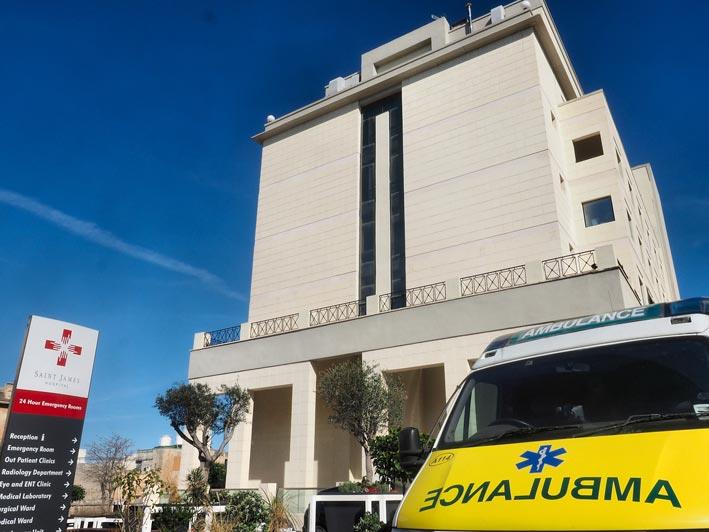
It does, however, appear highly likely that the St James investors will be the front-runners in the St Luke’s and Gozo Hospitals deal.
Dr Mizzi did say, however, that while it could be the case that the private companies that will take over the running of the Gozo and St Luke’s Hospitals could be comprised of a consortium of investors, he did not rule out that it may be a single company as well.
When pressed to say if the government was still considering private sector management of Mater Dei, he said that the government had told the US investors that it wants to retain ownership and clinical leadership at Mater Dei but that there will be an opportunity for a PPP for the development of major health hubs in Gozo and at St Luke’s.
He did, however, not rule out the possibility of the government issuing more PPPs to tackle Mater Dei’s waiting lists for instance, or certain management inefficiencies. This prompted the question as to whether the running of Mater Dei will be privatised, to which he replied in the negative.
“This is our intention for now, that the management won’t be taken over by the private sector, but we will seek support to improve on the management structures but no investor will take over the private running of the hospital.”
“This shows how the government is treading carefully when it comes to the strategic decisions it needs to take to turn the health sector into a viable and sustainable operation while retaining free health care for everyone,” asserted Dr Mizzi, who has been under constant fire from the Opposition for his zealous business attitude in the public sector.
Last month, The Malta Independent exclusively revealed that Capua Hospital is to be sold to foreign investors. The sale, for a price in the region of €25 to €28 million, has not yet been concluded, according to hospital owner Josie Muscat, and the deal has been postponed to the middle of April.
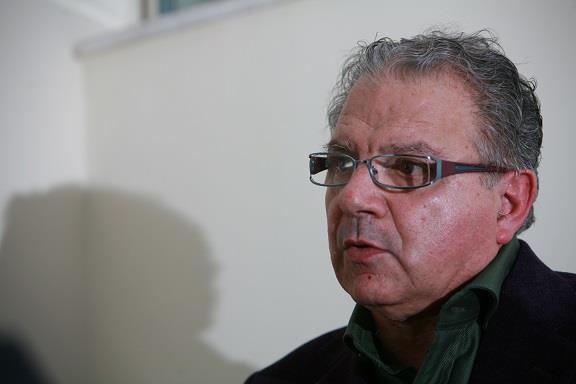
Despite the fact that the private hospital could soon be taken over by a foreign investor, Dr Josie Muscat (above) will still serve as a consultant to the new management for the first two years whilst operating a new hospital for which he has just received a permit from Mepa.
The new owners will retain the St James brand while all other property that is so far run under the St James name will now be renamed ‘Santa Maria’. This includes the hospital in Zabbar and the new one to be built.
While the government announced with a fanfare the call for the €200 million investment in the St Luke’s and Gozo hospitals, it has still to be seen whether the private sector will take the bait and invest money in the health institutions. A request for proposals seeking interested private investors will be issued in 10 days’ time, with the government expecting to select the preferred bidder by the end of this year.
Under the terms of the proposed public-private partnership, the private investor will be responsible for the capital expenditure and will be given the option to operate a private hospital on both sites.
Prime Minister Joseph Muscat said the plan will represent “a step change” in healthcare and will put free healthcare on a sustainable footing while creating an economic niche. A few days before he made the announcement, Dr Muscat hinted that a sustainable project was to be announced in Gozo.

Soon after the Gozo announcement, questions were raised by the Opposition as to whether Mater Dei would be privatised. Dr Mizzi confirmed that all state hospitals will remain government-owned while workers will retain their posts and will remain registered on the government’s books. He said that private investors will be able to contract other workers with different working conditions and integrate them into the system, especially when it comes to workers employed in the medical tourism sector, which would be managed by the private investors. It is also understood that, once these health institutions are being run by the private sector, no more personnel will be employed on the public payroll.
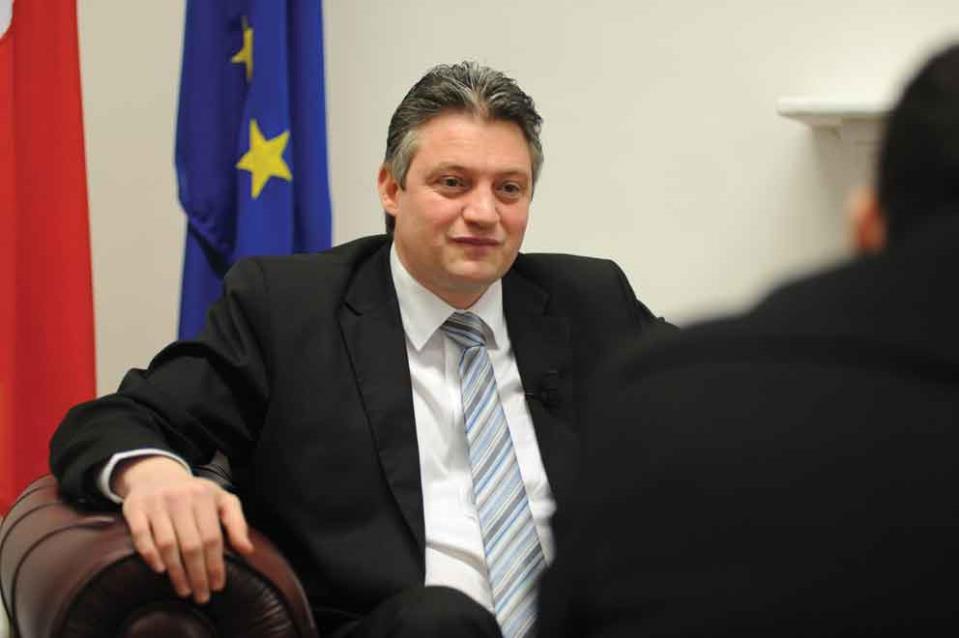
Why have you announced a €200 million investment in the Gozo and St Luke’s hospitals when you have still to issue a request for proposals? Were you approached by any potential investors beforehand which reassured you?
First and foremost the government has set out to improve healthcare across Malta and Gozo. We started with an ambitious plan to increase bed capacity by 500 beds across Malta and Gozo and we want to achieve that.
Having said that, we needed to prioritise the financing of the 500 additional beds and part of that will be funded by the government; the other part could be financed through Public Private Partnerships (PPP) or other means.
We started by essentially looking at which beds could be funded by the government and we came to a decision that 300 beds at Mater Dei would be financed by the State.
We wanted to upgrade St Luke’s Hospital as well, convert Karin Grech into a fully-fledged geriatric hospital which would be modern and reflect the needs of today, introduce a dermatology centre at St Luke’s, have a new rehabilitation centre and a modern Gozo hospital which would be an acute facility.
When we calculated the costs of all this, excluding Mater Dei and the primary health hubs, it amounted to €200 million. And when we were actually in the process of doing our homework, we were in negotiations with Barts Medical School to establish a base in Gozo.
Barts is a leading medical school, it has a very good reputation in research and we thought that this was a golden opportunity we couldn’t afford to lose. We decided to link the school’s reputable brand and goodwill with a prospective PPP, which would see the private sector attracting medical tourism.
In our discussions with Barts, we agreed and even included it in the contract that we would be in a position, as Malta, to leverage the brand of Barts Medical School and goodwill for promoting destination healthcare here in Malta. The fact that Malta would have a teaching hospital (Barts) in Gozo would help the private investor attract medical tourists. This, in addition to providing government beds which, for us, was quite important.
Our aim was to revolutionise the healthcare service in Gozo so that the service can be at par with Mater Dei, if not better, while having a top-notch rehabilitation centre (Karin Grech Hospital). To do that, the costs would be too high and we could not afford a situation where beds in Gozo would cost the government as much as the ones at Mater Dei to run. This is why we came out with the idea of medical tourism where, through shared facilities with the private sector, the costs per bed the State pays for would be reduced.
We believe that this formula, that is bringing in Barts and binding them with a 15-year contract, coupled with a prospective partner who would both attract medical tourism to Malta while also providing for the needs of the government, would essentially work.

Had the government spoken to healthcare providers, and what interest was shown?
We have spoken to various healthcare providers who showed interest in the €200 million project, prominent foreign companies, mainly those which were interested in medical tourism in Malta. Some are even interested in setting up shop without government support. They would identify the land and build their own facility to attract medical tourism, which would be separate from this project.
We have packaged the deal to make it attractive for the private sector, due to the fact that there is Barts in the middle of all this, while also making it attractive for the government.
The companies which have expressed an interest are specialist centres, insurance companies, health funds, as well as hospital management companies, so we do expect an interest in the project.
It could be the case that the project will be a joint one, meaning that it could be a consortium of companies or a single company for that matter, or it could also be a partnership involving medical specialists and management-related companies.
We got a feel of who was interested in the project before announcing the project; ever since I was appointed health minister along with Chris Fearne, who was appointed parliamentary secretary for health, we did get a number of foreign companies coming over to Malta to express an interest in destination healthcare for Malta.
Both mine and Dr Fearne’s primary objectives are to retain the free healthcare service as well as to raise standards. But if we can actually attract medical tourism to alleviate the costs of delivery, than this model we believe, can help, and will also help support and improve economic growth.
The whole initiative will create an excess of 1,200 jobs.
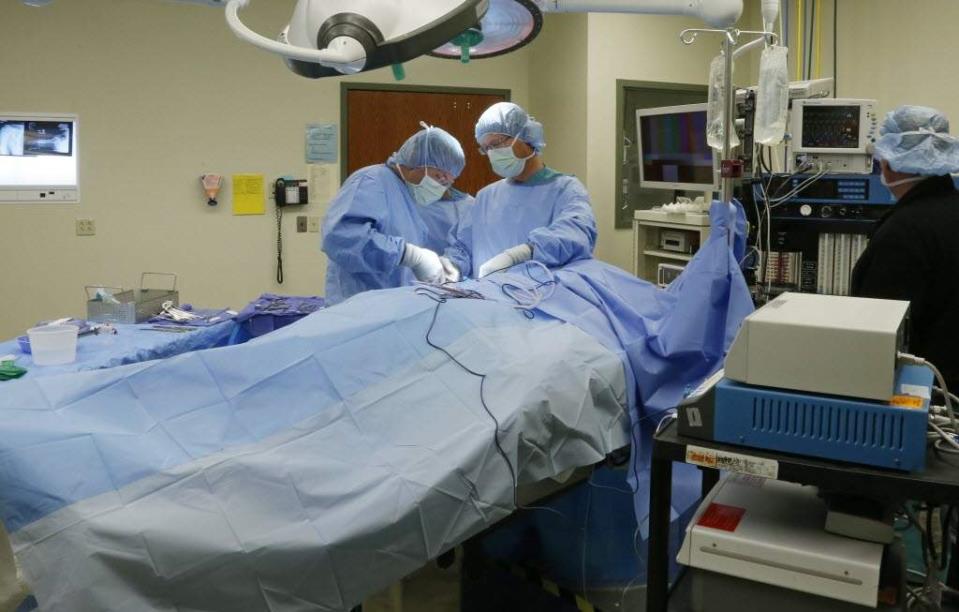
How will the private investors get their money back and make a profit?
We are envisaging a situation whereby the private sector will pay the government for the lease of the land used at St Luke’s and Gozo and in turn the private sector would have a number of revenue sources: they would be building the medical school for Barts and the school will in turn pay the private investors rent money at a pre agreed rate for 15 years. Another source of revenue for the private sector will be the beds the government will be buying, the last source being medical tourism, which will be managed by the private sector.
We wanted to structure it in this way because we believe that through shared services – such as the use of MRI equipment for instance – such equipment can be used both for the medical tourism component as well as government services, making the project sustainable.
Shared services lead to economies of scale which can help reduce the costs for government. For instance, if the government were to develop an acute facility in Gozo with just 125 beds, the number required by the government, this would raise the costs above what it would cost us for Mater Dei.
In line with our expectations, given that we will have a 450-bed hospital in Gozo, including 250 acute beds, double what we need essentially, since there is a component of medical tourism, it will help to reduce costs and make it affordable for the government.
The private operators will be attracting medical tourism directly and will decide what disciplines to focus on vis-à-vis tourism, how to best structure the deals, and to market it and bring it to Malta.
The government does not want to take the project risk of the private operator and we will be making it explicitly clear in the Request for Proposals (RFP) that the medical tourism project risk and opportunity lies with the private operator. Some of the operators have good links with insurance companies for instance, which would guarantee a pipeline of patients.
Based on the contractual arrangements the operator will have, it will be in a position to provide the government with a fixed low cost per bed.

Will all current staff stay on the State pay-roll?
The intention is for all government staff to remain government employees – a commitment we have clearly stipulated – that the collective agreements will be respected. However, the private sector will have to fund the salaries in the final costs that will be provided to us.
When the agreement reaches renewal stage, the government will enter into negotiations with the unions to reflect the conditions while also making sure that healthcare professionals have attractive conditions because we need to attract more people to these professions.
What about new employees? Will these be employed by the investors?
There are different conditions one can consider tied to the new employees but the major factor is the medical tourism component where the private operator will be sustaining the salaries of workers involved in this sector.
Our estimate of new workers comprises a mix of areas they would work in, not just medical tourism, but we will have to wait for proposals to be submitted in the RFPs first.
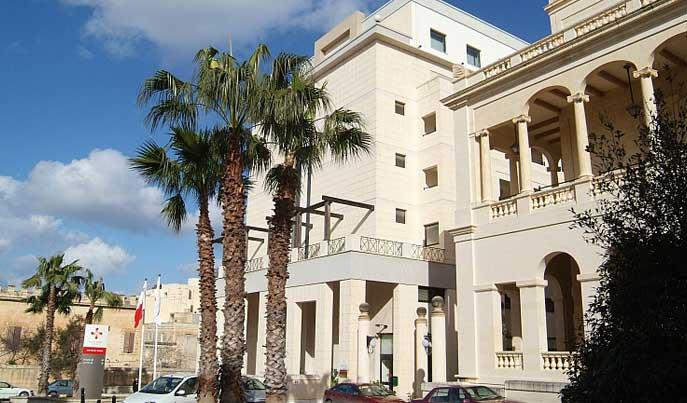
Can you confirm that the same investors who are buying St James have pitched to manage Mater Dei?
Yes, I can confirm that HTIC have approached us and asked to take over the management of Mater Dei Hospital (MDH); we informed them that the government wants to retain ownership of MDH and its clinical leadership. But we did inform them that there are other opportunities across the health sector and we did mention the Gozo and St Luke’s opportunity so they are fully aware.
So you are adamant that the St James investors won’t be taking over Mater Dei?
At this point in time, we are not considering this option but what we have considered though is that we will be adding 300 beds at MDH and improve the current services.
This in no way means that we will not issue PPPs to address waiting lists in future for instance, like we did in the past, or addressing certain management inefficiencies.
So the government will be roping in the private sector to handle such inefficiencies?
We will consider outsourcing operations as we did in the past with other groups, but the running of Mater Dei will remain as is, at least for the time being. We will seek help to actually improve our management structures and finances.
We don’t want to give Mater Dei to private investors. They have expressed an interest in diverse assets in Malta such as Gozo and St Luke’s.

Will there be private services integrated into Mater Dei?
Our priority at Mater Dei is to address our challenges, such as the problem of patients in corridors, so I cannot expect Mater Dei to be privately managed when we have such a situation. When the situation is sorted out, then we can seek additional sources of revenue for Mater Dei but only after we have addressed our current shortcomings.
Some months ago you announced the PPP for health centres. Was there any interest shown and by whom?
There is some interest; we are currently in discussions with the unions on the issue and in the coming weeks we will establish where best we can start off with the PPP. Initially, we had mentioned Cospicua but we had some interesting observations regarding Kirkop. Local companies have approached us on this specific PPP.

Will the medicines at home delivery service be integrated in the PPP? What are you doing on that front?
At the moment, the provision of medicines to the public is delivered through a PPP – the Pharmacy of Your Choice scheme; the POYC is working well and we have improved significantly over the last few months, and reduced drastically the out of stock problem. In fact, this week, we did not have one single medicine that was out of stock. We intend keeping the out of stock situation within the single digit target.
We do envisage that the delivery scheme will be administered through the POYC scheme as well. It does not make any sense to create a new delivery channel and we want to ensure the patient retains the link with his pharmacist; more details will be given in the coming months on these developments.
With so many PPP in the health sector you will eventually need to sustain four hospitals (Mater Dei, Oncology, St Luke’s and Gozo). Will this raise the health bill and by how much?
The Oncology centre is a key component of MDH – it is an integrated hospital – but there is Mt Carmel Hospital as well. The intention is to close Boffa Hospital, retain Mater Dei as a teaching hospital, have Gozo hospital as a teaching hospital and St Luke’s as a teaching facility while redeveloping Mt Carmel.
In addition to that, our strategy includes developing primary healthcare hubs; we want to encourage the use of GPs at a local level, providing them with more access to medical information to help reduce the complexity of the number of patients who go to Mater Dei.
Essentially, there will be incremental costs when one introduces new services; for instance services in Gozo are already available but we will be introducing more services. Geriatric care is offered and we are going to expand that.
We will allocate additional funds in areas where we want to offer new services as opposed to increasing funds for existing services.
The Opposition recently called on the government to issue more details on the €200 million investment. Will you be providing more details and when?
As we go along we will announce further details and provide briefings. We are in the process of issuing a Request for Proposals and on the same day we made the announcement we briefed Parliament with the details of our intent and gave numerous media interviews and had a fully fledged news conference, which means the details are emerging. As for Barts, it will open in 2016 and the whole project will happen over a stretch of four years.
The private operator will be obliged to develop a new building for Barts but if that is not ready we have a contingency plan which is included in the contract between the government and Barts to provide an existing facility for them to start their training in September 2016.
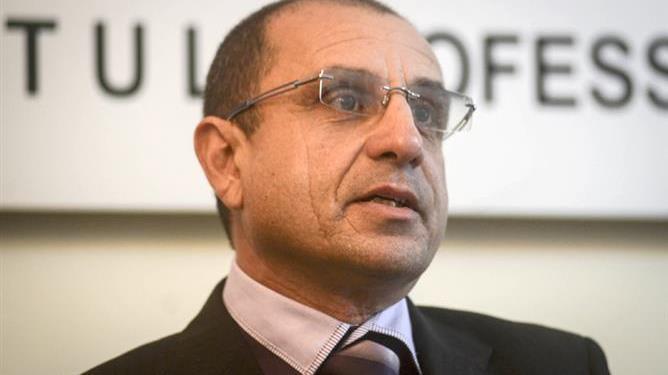
What are your comments on Paul Pace’s resignation from the MUMN?
I have worked closely with Paul as I have done with other unions. I congratulated the newly elected union representatives. We will be meeting the MUMN next week – the main joint challenge is to create enough skills in the marketplace, to have more nurses due to the shortage which exists.
We will also identify a new nursing school to support the development of the nursing community and the government will be working with the University of Malta to help with the nursing profession aspect.